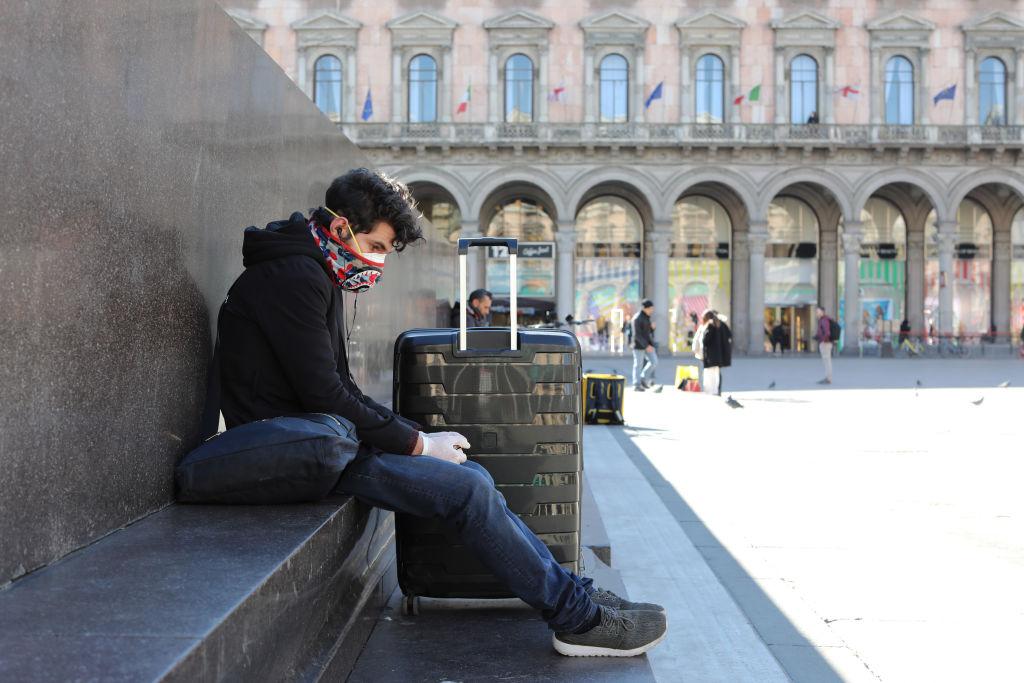This website uses cookies so that we can provide you with the best user experience possible. Cookie information is stored in your browser and performs functions such as recognising you when you return to our website and helping our team to understand which sections of the website you find most interesting and useful.

Britain’s holiday industry began 2020 in great shape.
The damage that Brexit will wreak on travellers and businesses had been postponed until the end of the year. Instead, everyone was talking of growth: more people venturing to more places, enjoying better value and safer journeys than ever before.
Barely three months on, the travel industry is on life support. Lockdowns, flight bans and travellers’ trepidation about coronavirus have combined almost to extinguish the business. Tens of thousands of staff at airlines and holiday firms have been laid off, and some may never return to their old roles.
In a very competitive field, though, probably the candidates who deserve most sympathy are travel companies that put together overseas package holidays. Rules that were put together with the best of intentions have placed many agents and operators in an impossible position.
At the root of the problem is the special consumer protection in place for travellers.
As you will have spotted, travel is only distantly related to real life (especially at the moment) and normal commerce. You and I pay money weeks or months ahead for a mere aspiration, and take delivery only when we turn up at the airport or cruise terminal.
As millions of people with holidays booked for the Easter holidays will testify, plenty can go awry between handing over hard-earned cash and stepping on board. The Package Travel Regulations are designed for disarray: from the moment it becomes clear the holiday you booked cannot be delivered, the organiser has two weeks in which to return all your cash.
When a single country, such as Tunisia, or a particular resort such as Sharm el Sheikh, joins the Foreign Office’s “no-go” list, the travel industry can generally cope. But we are in the middle of a spell when everywhere beyond Dover, Derry and Dunnet Head is deemed off-limits to package holidaymakers.
Everyone wants their money back, please. And on their side: a law never intended for disruption on this scale. Which puts many travel providers in an impossible position.
They have passed on customers’ money to airlines that are now not flying and hotels that are closed. They are now obliged to refund everyone regardless of the fact that a lot of the actual cash is probably locked in a vault by someone who is surveying their own corporate carnage and is in no rush to refund anyone.
Created with Sketch.
Created with Sketch.
1/20
Top: Nabi Younes market, Mosul
Bottom: Charles Bridge, Prague
Reuters
2/20 Grand Mosque, Mecca
Reuters
3/20 Sagrada Familia, Barcelona
Reuters
4/20 Nabi Younes market, Mosul
Reuters
5/20 Basra Grand Mosque, Iraq
Reuters
6/20 Charles Bridge, Prague
Reuters
7/20 Taj Mahal hotel, India
Reuters
8/20 Dubai Mall, UAE
Reuters
9/20 Beirut March, Lebanon
Reuters
10/20 Gateway of India, Mumbai
Reuters
11/20 Cairo University, Egypt
Reuters
12/20 Amman Citadel, Jordan
Reuters
13/20 Church of the Nativity, Bethlehem
Reuters
14/20 Beirut March, Lebanon
Reuters
15/20 Cairo, Egypt
Reuters
16/20 Cairo University, Egypt
Reuters
17/20 Victoria Memorial, India
Reuters
18/20 Amman Citadel, Jordan
Reuters
19/20 Amman Citadel, Jordan
Reuters
20/20 Sidon, Lebanon
Reuters
1/20
Top: Nabi Younes market, Mosul
Bottom: Charles Bridge, Prague
Reuters
2/20 Grand Mosque, Mecca
Reuters
3/20 Sagrada Familia, Barcelona
Reuters
4/20 Nabi Younes market, Mosul
Reuters
5/20 Basra Grand Mosque, Iraq
Reuters
6/20 Charles Bridge, Prague
Reuters
7/20 Taj Mahal hotel, India
Reuters
8/20 Dubai Mall, UAE
Reuters
9/20 Beirut March, Lebanon
Reuters
10/20 Gateway of India, Mumbai
Reuters
11/20 Cairo University, Egypt
Reuters
12/20 Amman Citadel, Jordan
Reuters
13/20 Church of the Nativity, Bethlehem
Reuters
14/20 Beirut March, Lebanon
Reuters
15/20 Cairo, Egypt
Reuters
16/20 Cairo University, Egypt
Reuters
17/20 Victoria Memorial, India
Reuters
18/20 Amman Citadel, Jordan
Reuters
19/20 Amman Citadel, Jordan
Reuters
20/20 Sidon, Lebanon
Reuters
In response to a cash-flow crisis of absurd proportions, Abta, the travel trade association, is urging customers to ease the pressure on their holiday provider. Accept a “refund credit note,” exchangeable for cash at the end of July, and you give the travel firm a lifeline in the form of an interest-free loan. Your funds are safe, because Atol or Abta protection stays with the money.
If you can afford to take an IOU in lieu of cash, please do – not least out of self-interest. Were the travel company to go out of business, experience from the Thomas Cook collapse shows that you could wait months for an Atol pay-out.
This is a time to understand each other’s predicaments and support decent people trying to do a good job in calamitous circumstances. But in return, travel companies must be honest with their customers.
I have seen dozens of examples of companies pretending that Abta’s recommendations are law, or that the Package Travel Regulations have been suspended. They aren’t, and they haven’t, and any firm that seeks to mislead customers is treading on dangerous ground.
Travel is built on trust, and that matters now more than ever.



 Africana55 Radio
Africana55 Radio 

